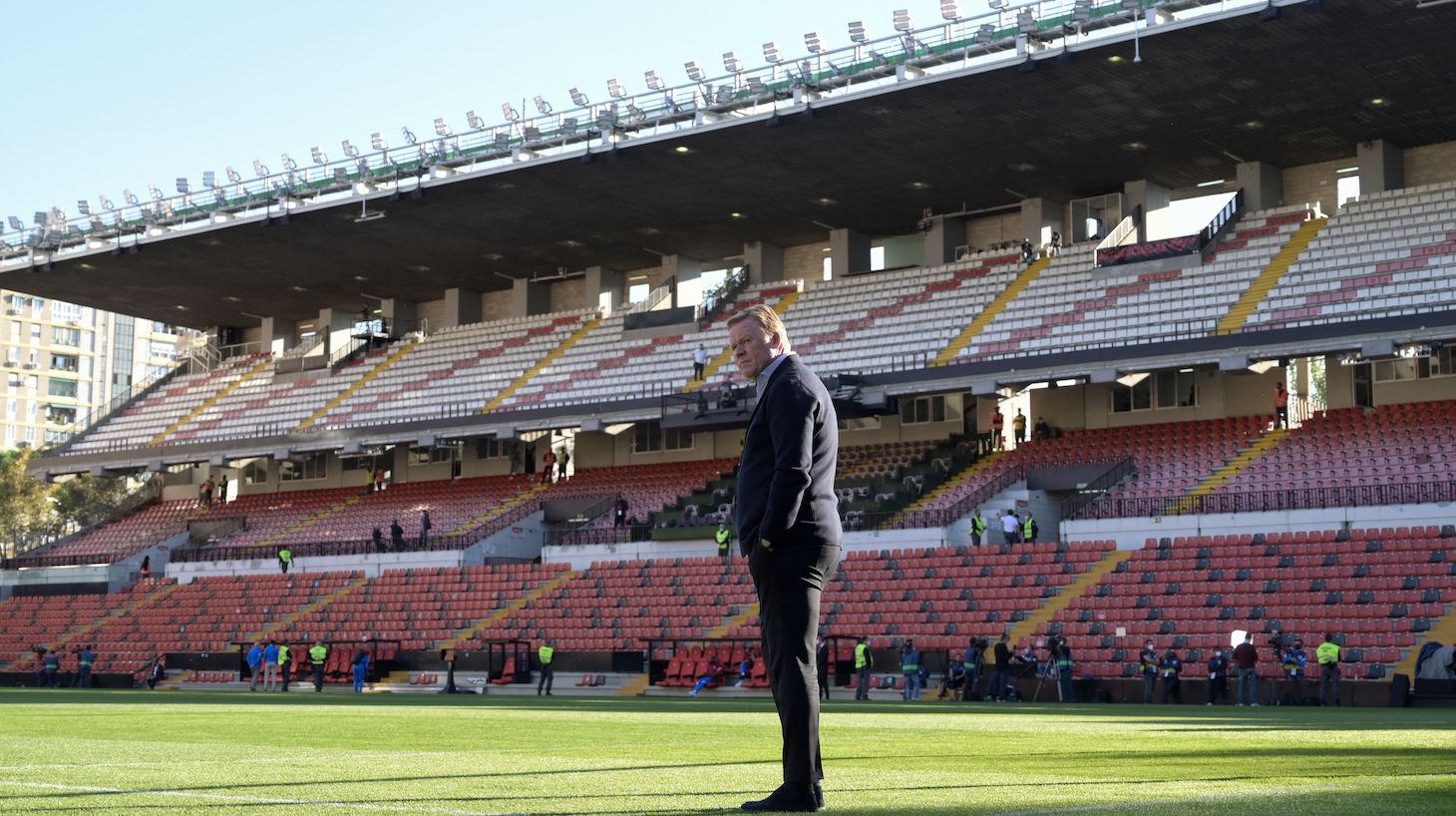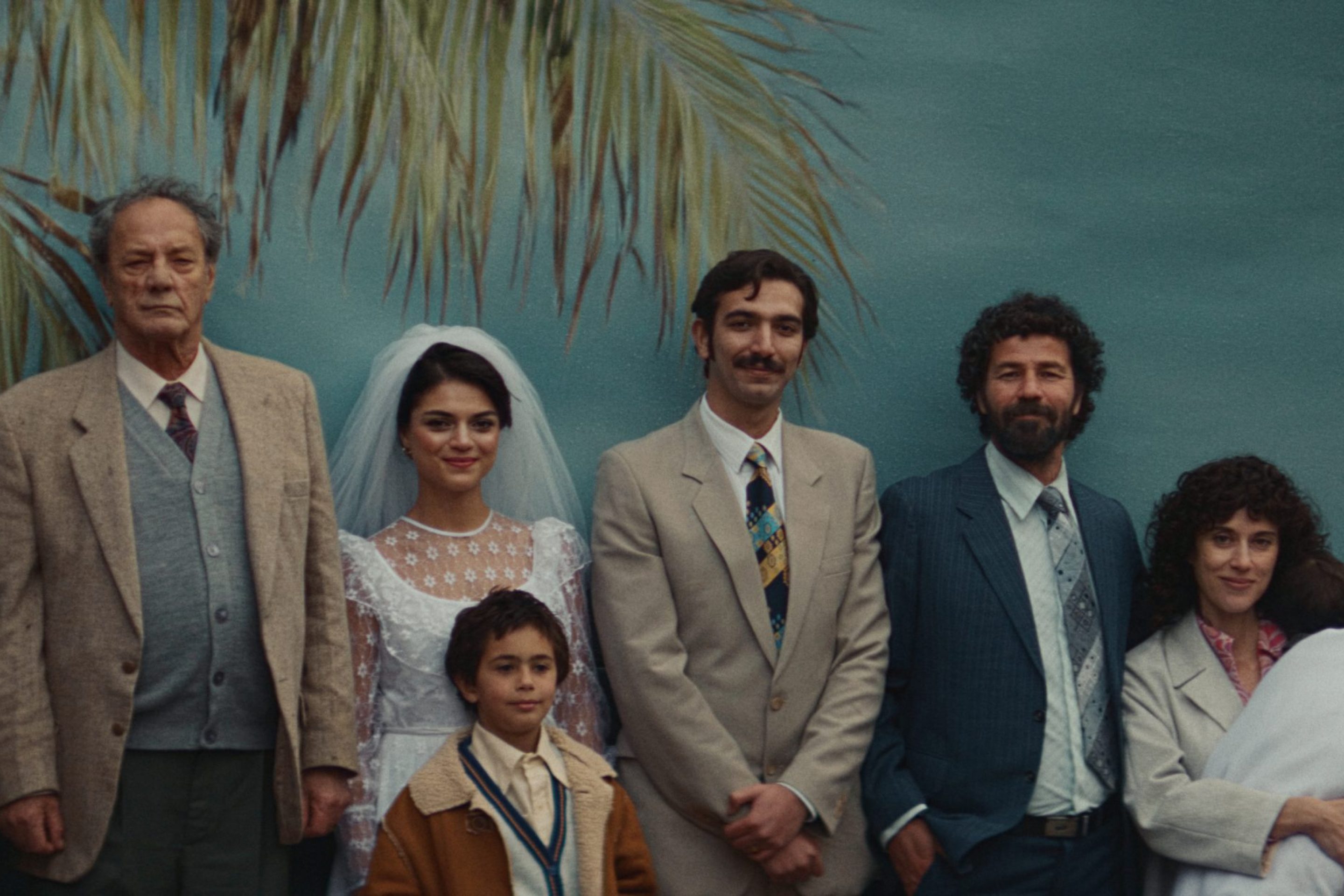Barcelona fired Ronald Koeman. The only surprise is that it took so long. The club's new president, Joan Laporta, clearly never trusted the manager he inherited, and the only things that kept Koeman in the job for this long are the lack of obviously superior replacements and the club's sorry financial situation. Koeman probably feels a little unlucky, which to a certain extent would be justified. Nevertheless, Koeman's results this season have been awful and the performances even worse. Koeman had to go, and now he has. Finally, Barcelona can begin to start over.
Barcelona's season so far has been atrocious. Across all competitions, the team has compiled a record of five wins, five losses, and three draws. The team has lost every big game, often in embarrassing fashion: a pair of 3–0 drubbings in the Champions League to Bayern Munich and Benfica, a 2–0 loss to Atlético Madrid, a 2–1 home defeat to Real Madrid last weekend. Arguably even worse than those losses against strong opposition have been the agonizingly uninspired showings against smaller teams. After losing Lionel Messi and Antoine Griezmann at the start of the season due to the club's financial crisis, and in light of the recent emergence of several extremely promising but extremely young talents, it was clear that the club was in a deep hole, out of which a great team could arise only after being fully rebuilt from the ground up. Koeman's big failure was that, rather than laying any foundations, his efforts appeared only to be digging the hole even deeper.
In spite of all that, Koeman's fall wasn't entirely his fault. For one, Laporta botched his handling of the managerial situation at almost every turn. At two key moments—first leading into this season, then during a terrible stretch in September—Laporta neither fully committed to Koeman nor got rid of him. That very public indecision, and the media battle it sparked between president and manager, killed any chance of the team working on itself in confidence and in peace, whether that be under Koeman's stewardship or another's.
Secondly, Koeman was unfortunate to lose his job before getting to play a single minute with what should be this roster's strongest attacking corps. Goals win games, and the players Barcelona counts on to score and create those goals—Memphis Depay, Ansu Fati, Pedri, Sergio Agüero, and Ousmane Dembélé—have still yet to all be healthy at the same time. For Barça to play at anything close to its potential, it will need to have at minimum three of those five players on the pitch at the same time, which has not once been the case.
But the biggest reason why Koeman is not entirely to blame for the way this campaign has gone is a matter of expectations. If the ceiling of what was possible for Barcelona lowered considerably when it lost Messi, then it fully collapsed on itself when the team lost Griezmann. Even without Messi, having Griezmann meant Barça could build around one of the two or three biggest talents in the league. But with the Argentine and the Frenchman gone—and remember, on Aug. 1 the club thought it would be able to count on both of them, and it wasn't until Aug. 31 that it realized it wouldn't have either one!—Barça became a complete uncertainty that would need to start over from scratch.
Now, typically, Barcelona is a club that is and should be held to the highest of standards. However, without a proven superstar, and with a heap of youngsters who may one day become superstars but are not even close to that level yet, that trophies-or-bust standard is wildly unrealistic. The content of much of Koeman's public comments this season has been aimed at bridging that expectation gap. He's responded to almost every bad result with a variation of the same mantra: What did you expect? According to him, the young players need time and patience to grow, the team as a whole needs to get its handful of attackers healthy before it has even the possibility of being good, and a successful season would be would be qualifying for the Champions League knockouts and "finishing high" in La Liga, i.e. vying for third or fourth, not first or second.
Almost all of Koeman's case there is true. The problem is that Koeman is just about the worst possible person to make that case. Even though his job changed dramatically from when he signed on to coach the Messi-led, still (believed to be) rich Barcelona in the summer of 2020 to the Messi- and Griezmann-free, nearly bankrupt club it is today, the fact remains that Koeman was brought in to win. He was indeed hired to oversee a transition, but it was supposed to be one that would see the squad liberated from the revered but declining figures of the last successful Barcelona cycle and brought into a new cycle of success that could maximize the final years of Messi's prime. It's difficult for fans, the media, the players, and probably even the manager himself to originally conceive of the coach's mission one way, only for that mission to completely change almost overnight. Koeman appreciated that his task had changed, but his efforts to convince everyone else of that, and that he was the right man for this new task too, ultimately fell short.
However, it never should've been on Koeman to communicate the club's depressing new reality in the first place. Laporta and the club itself should've taken the lead there, and the absence of the club's leadership in that department only further muddied the situation. Behind Koeman's question—What did you expect?—there was a more important question: Who sets the expectations at Barcelona? By leaving Koeman to argue his vision while refusing to either echo that vision publicly or declare it wrong by firing the manager, Laporta created an ambiguity that allowed for contradictory expectations imposed by anyone with an opinion. It's impossible to build anything when everyone involved is working off a different blueprint.
If there's any good news to come from Barcelona's trajectory this season, it's that the bad performances and Koeman's firing should reestablish a clear, consistent, appropriately low set of expectations going forward. The team is currently ninth in La Liga, has one foot in the Europa League, and has not managed to put two consecutive entertaining outings together all season long. The presumption of excellence and silverware that arose during the Messi era should be just about entirely eradicated now, the final whiffs of which should follow Koeman out the door. The next manager will earn himself miles of leeway simply by giving Barcelona fans reason to believe that the next match won't be the worst yet, and that it might even be fun to watch, too.
By every report, it's only a matter of time before Laporta announces that Xavi will take over as Koeman's replacement. Xavi—one of only a handful of figures who can claim to be an even bigger Barça legend than Koeman—will bring to the position two-and-a-half years of managerial experience, all of it gained at Qatari club Al Sadd. Not exactly the most impressive resumé. Nevertheless, because of his history as a Barcelona player, and because of Barcelona's well-established preference for managers who were once Barcelona players, he has been considered the next great Barça manager even while he was still playing there. The Barça manager's chair has long looked to be his by birthright, and Xavi seems to have considered it that, too.
Just as clear as it was that Laporta never really believed in Koeman, it's evident that the president is skeptical about Xavi's managerial abilities at present. During the many instances over the past six months when Barcelona was casting about for Koeman substitutes, it was often reported that many on the club's board were eager to give the job to Xavi, but Laporta didn't think he was ready. Had Laporta truly thought Xavi was the best man for the job, he would've made the change ages ago.
Laporta's skepticism is understandable. Coaching in Qatar at Al Sadd has very little to do with coaching in Spain at Barcelona. The Qatar Stars League, which Al Sadd has dominated forever, is nowhere near as competitive as a league like Spain's, and has a very different tactical culture than what is found in Europe's elite. (It's telling that, in this video where Xavi lays out his playing philosophy and tactical strategy, he admits that "90, 95 percent of the time" Al Sadd faces teams that defend in deep blocks and do not press high; you might have noticed that high pressure is currently the ruling paradigm in Europe!)
At Al Sadd, Xavi is far and away the most important person at the club. The squad, made up almost entirely of Qatari players plus a few older, big-name foreigners who used to play in Europe, knows full well that they serve at his pleasure, not the other way around. This will decidedly not be the case at Barça. Apart from the nuts and bolts of running training sessions and coming up with gameplans and yelling instructions from the sideline, very little of what Xavi has learned in his coaching career will be all that applicable to the job he is about to start.
That doesn't mean Xavi is doomed to fail. Two of the winningest managers of the past decade—Pep Guardiola and Zinedine Zidane—brought very little prior managerial experience gained at clubs far below the elite to the biggest clubs in the world, and both were sensations right away. Of course, the Guardiola-Zidane model is what Chelsea thought it was replicating with Frank Lampard, and Juventus with Andrea Pirlo, and we all know how those ended. It's not that Xavi can't succeed at Barça, but more that he, like the team he will soon take over, is a complete unknown. The case for him is not based on what he's done, but rather who he is and what a couple similarly positioned managers have done before.
It's unclear whether Xavi is necessarily a good hire, but he's undoubtedly a smart one. Because he's seen as "the chosen one" by almost the entire fanbase, Xavi, more than probably any coach Barcelona could've realistically brought in, will benefit from enormous reserves of goodwill, patience, and trust. Everyone who cares about Barcelona will want to see Xavi succeed. And because Koeman took the team's short-term expectations away with him, the definition for success at Barcelona has never been easier to attain.
It was always going to be a hard, painful process for Barcelona to come to grips with what it meant to no longer have Messi. The timeline for that reckoning accelerated way faster than anyone wanted, and the impact of Messi's departure on the team that remained was far greater than it should've been, thanks to years of mismanagement at the club. Still, Messi is in fact gone now, as is the sense of what Barcelona can and should be expected to achieve on the pitch.
The team's young, exciting core deserves the chance to themselves define what the new Barcelona will look and feel like, free from the vestigial constraints and obligations imposed on their predecessors. That process won't be easy, it will take a lot of time, and it will most likely require a brilliant mind at the helm who can guide the team to where its talents can take them. No one knows if Xavi has the ability to get them there, but simply by being who he is, he will allow that work to officially commence, and to do so in peace.






